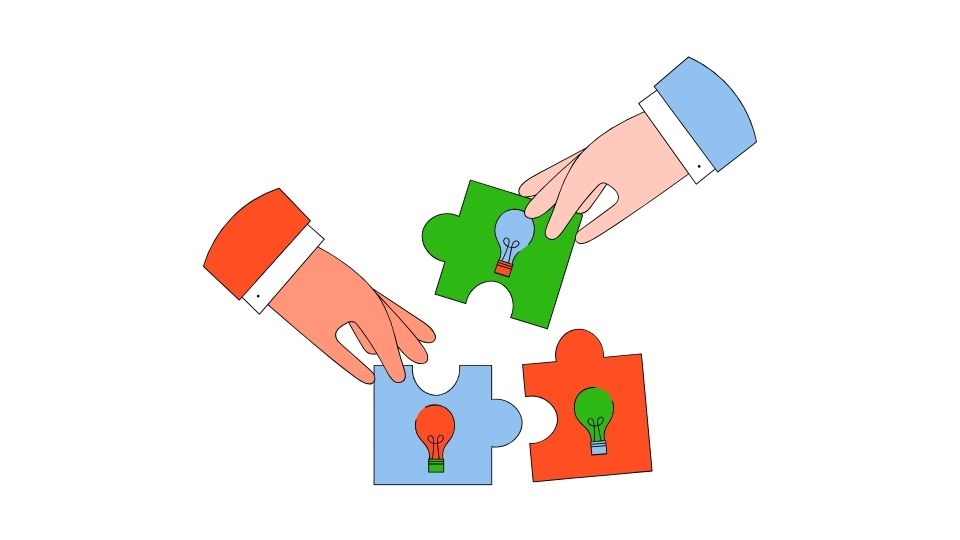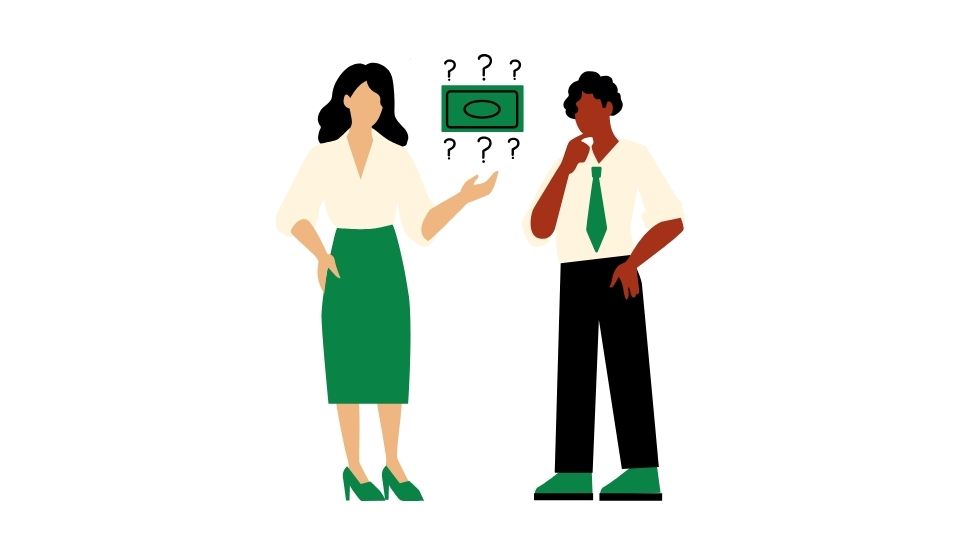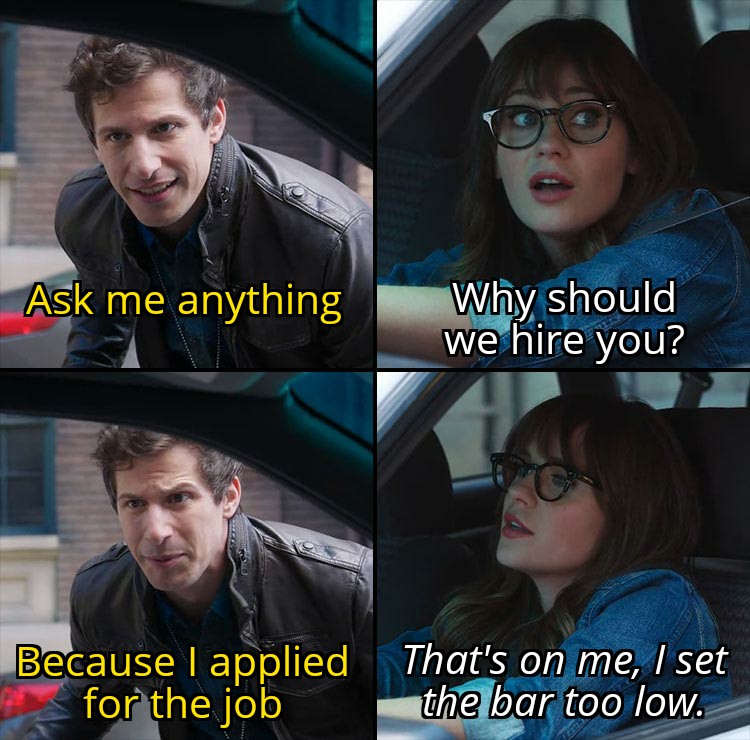Rejected From a Job? Here’s How to Bounce Back Stronger

Ever been rejected from a job? Yeah me too. Actually, a bunch of times.
And let me tell you – it sucks. Like getting-ghosted-after-a-great-date kind of sucks.
But here’s the truth: job rejection is completely normal. In today’s job market, it’s typical to get 5-10 rejections before landing a role. And as competition heats up, that number only goes higher.
I once read about Zainab, a 23-year-old job seeker who wrote about feeling “hopeless and defeated” after multiple rejections. Sound familiar?
But here’s the thing – rejection isn’t a reflection of your worth. It’s just one step on your journey toward the right position.
We tend to internalize rejection, taking it as a personal failure. This can absolutely destroy your self-confidence and trigger anxiety.
But hiring decisions are complex and often depend on factors completely beyond your control – like company needs, specific criteria they’re looking for, or even office politics.
Sometimes the process is just plain imperfect, and you’re rejected for no clear or fair reason. Recognizing this can help you avoid taking rejection personally and maintain perspective.
Emotional Resilience: Processing and Moving Forward
Acknowledge Your Emotions

It’s totally natural to feel disappointed, frustrated, or sad after a rejection. Allow yourself time to process these feelings rather than pushing them down.
Taking time to care for your emotional well-being is crucial – practice self-care, whether that means hitting the gym, diving into hobbies, or hanging out with people who lift you up.
Zainab found talking to friends and family therapeutic, as their support helped her feel less isolated and judged. Sometimes just hearing “I’ve been there too” can make all the difference.
Reframe Your Mindset
Instead of dwelling on the negative, try to see rejection as redirection—a chance to grow and learn.
I love this quote I saw recently: “If I’m not getting rejected, I’m not being ambitious enough.” That really highlights that rejection can actually be a sign you’re aiming high!
View each “no” as bringing you closer to the right “yes.” This mindset shift empowers you to persist and remain open to new opportunities.
Talk to Someone

Opening up about your experience can reduce feelings of shame and remind you that rejection is a shared human experience. We’ve literally all been there.
Sharing with peers or mentors can also provide practical advice and emotional support, helping you regain confidence and motivation. Don’t go through this alone!
Turning Rejection into Growth
Request Feedback
Whenever possible, ask the employer for constructive feedback on your application or interview performance.
While not all companies provide this (honestly, most don’t), some may share insights into what they were looking for or how you could improve. This kind of feedback is golden for refining your approach—whether it’s tweaking your resume, sharpening interview skills, or gaining new qualifications.
Review and Reflect
Take an objective look at your application process:
- Were there gaps in your skills or experience?
- Did your resume or cover letter need improvement?
- Did you adequately prepare for the interview?
Reflecting on these questions helps you identify concrete areas for development. But don’t forget to balance self-assessment with self-compassion—acknowledge what went well, not just what didn’t.
Refocus Your Energy
After taking time to reset, revisit your career goals:
- What kind of work excites you?
- What skills do you want to develop?
Reaffirming your “why” can restore clarity and motivation as you continue your search. Update your resume, LinkedIn, or profiles with new experiences or skills, and consider reaching out to your network for advice or opportunities.
Practical Strategies for Persistence

Don’t Put All Your Eggs in One Basket
Apply to multiple roles and keep your options open. Sometimes, the job or company you least expect turns out to be the best fit. I’ve personally experienced this!
Casting a wide net increases your chances and reduces the emotional impact of any single rejection. Plus, more interviews = more practice.
Make an Alternative Plan
If your dream job remains out of reach, brainstorm alternative pathways to your goal.
For example, if you’re rejected by a publishing company, consider self-publishing, networking at industry events, or contacting other publishers. Flexibility and creativity in your job search can lead to unexpected opportunities.
Keep Applying
Persistence is key. Each rejection is a chance to refine your approach, improve your skills, and build resilience.
The average job seeker faces several rejections before success—remember, you’re not alone in this experience. Every application and interview is practice that brings you closer to your goal.
Reversing a Rejection: Rare but Possible
While uncommon, it is sometimes possible to reverse a job rejection. (Yes, really!)
If you’ve gained new qualifications or believe there was a misunderstanding, consider reaching out to the employer. Politely acknowledge their decision, express your continued interest, and highlight any new skills or experiences.
Demonstrating enthusiasm and growth may prompt them to reconsider if circumstances change. I’ve seen this happen a few times – especially when their first-choice candidate falls through!
Cultivating Long-Term Resilience

Normalize Rejection
Accept that rejection is an inevitable part of professional growth. The more you embrace it, the less power it has over your self-esteem and motivation.
Learning to handle rejection productively is a skill that will serve you throughout your career. It’s like developing an emotional muscle.
Practice Self-Compassion
Be kind to yourself. Job searching can be exhausting and emotionally draining.
Acknowledge your efforts and progress, and remember that setbacks do not define your future. Would you talk to a friend the way you talk to yourself after a rejection? Probably not – so give yourself some grace.
Learn from Others
Read stories of successful individuals who faced repeated rejections before achieving their goals. Many accomplished professionals have endured numerous “no’s” before finding the right opportunity.
J.K. Rowling was rejected by 12 publishers before Harry Potter was accepted. Steve Jobs was fired from Apple before returning to make it the most valuable company in the world. Their experiences can inspire you to keep going despite setbacks.
Handling job rejection gracefully isn’t about avoiding disappointment, but about managing it constructively.
By recognizing that rejection happens to everyone, processing your emotions, seeking feedback, and persistently refining your approach, you can turn setbacks into stepping stones.
Each “no” brings you closer to the right “yes”—and the resilience you build along the way will serve you well in every aspect of your career.
Stay persistent, stay positive, and remember: the right opportunity is out there. Your next step might be just around the corner.

